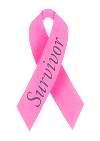 Topic RSS
Topic RSS10:03 am
December 5, 2009
 Offline
OfflineI have to say that of all the books I have read on the life and death of Anne Boleyn, The Lady in the Tower, by Alison Weir, is probably the one I found the most distasteful.
Although Weir takes pains to point out that she is fascinated by Anne, the whole tone of the book projected a deep dislike for the woman Weir claims to admire. Although Weir ultimately and logically comes to the conclusion that Anne was innocent of all charges brought against her, thereby exhibiting apparent support for Anne, this support would have been a little more convincing had she not spent the first two-thirds of the book criticising Anne and her family at every available opportunity.She describes Anne as vindictive and shrewish and George as a besti*l rapist and wife abuser, with no evidence to support that assertion. Weir appears to think that by finding Anne innocent she is exhibiting admiration and support for her, but this is at complete odds with the overall tone of the book. To my mind this gives a very insidious nature to the criticism of Anne and her family.
The whole thrust of the book appeared to me to be an attempt to exonerate Henry from any involvement in Anne's fall, rather than being a genuine attempt to give a balanced view of that fall. In order to try and prove Henry's innocence Weir often incorrectly quotes from sources and gives some highly questionable interpretations to extant records. She gives very shaky 'evidence' for Jane Rochford's involvement in the incest allegation, which John Guy tactfully referred to as Weir being 'duped'. I think that 'duped' is debatable. All serious historians have long since dismissed the speech that Lady Rochford made at her own execution as a myth, and I find it difficult to accept that Weir believed it to be genuine, despite her quoting it as fact.
Like Retha Warnicke, Weir came up with theories which she was unable to back up with evidence, but unlike Warnicke, who more or less admitted that her work was merely an academic thesis, Weir tried to convince us of her theories, not only by misinterpreting extant sources, but by manufacturing evidence that never actually existed. For example, Chapuys made no mention of Jane Rochford as being the instigator of the incest allegation, and neither did anyone else. Another example is Weir using Warnicke's discredited theory that George Boleyn may have been bi-sexual, without providing any evidence whatsoever other than a vague reference to a comment made in a poem by George Cavendish, which on close examination has been totally misinterpreted.
I genuinely feel this book is an attempt to pull the wool over our eyes, and that is not helped by Weir's infuriating lack of references. She may choose to blame her editor/publisher for the lack of references, but that is a shoddy excuse. Ultimately the buck stops with her.
Finally, Weir made a monstrous attack on Julia Fox throughout the book. Yet whether or not you believe in Jane Rochford's culpability, Foxe's work is thorough, well researched and honest in her handling of the evidence against Jane, which is totally at odds with Weir's highly questionable approach. I though that was truly disgraceful.
This book really isn't worthy of someone of Weir's capabilities, and certainly not worthy of someone who holds themselves out to be a serious historian. She has used her celebrity to great effect in convincing people of it's merit. However, I found the book to be unpleasant, insidious and inaccurate. Needless to say I never want to read a book written by this woman again as long as I live.
I know Weir is popular, and that my comments will not be appreciated by most people, but I feel so strongly about this that I really think we should question the woman without simply taking her celebrity as confirmation that what she says is accurate and /or correct.
What do others think?
2:22 am
August 12, 2009
 Offline
OfflineI think a lot of us believe that Weir doesn't seem to like Anne, cites debunked sources, and cites very vaguely her sources throughout her books. More than a few of us have noticed her works are peppered with 'probably', 'should have', 'would have', 'surely', 'must have', 'likely', 'seems to have', etc.
Her works are very readable, but I take them with a grain of salt.

"Don't knock at death's door.
Ring the bell and run. He hates that."
2:33 am
December 5, 2009
 Offline
Offline8:55 am
February 24, 2010
 Offline
OfflineImpish_Impulse said:
I think a lot of us believe that Weir doesn't seem to like Anne, cites debunked sources, and cites very vaguely her sources throughout her books. More than a few of us have noticed her works are peppered with 'probably', 'should have', 'would have', 'surely', 'must have', 'likely', 'seems to have', etc.
Her works are very readable, but I take them with a grain of salt.
I agree. When compared with historians such as Starkey and Ives, Weir is found to be lacking. But, I find her readable. When reading her books, you have to ignore her guesses.
7:57 pm
August 12, 2009
 Offline
Offline6:53 pm
November 18, 2010
 Offline
Offline6:49 pm
August 12, 2009
 Offline
Offline
 Log In
Log In Register
Register Home
Home







